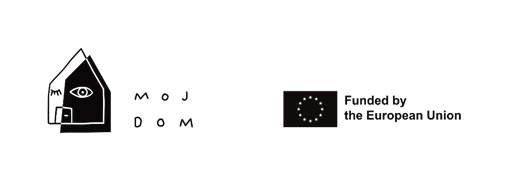Competitive research projects
MOJ DOM. Refugees, migration and erased memories in the aftermath of Yugoslav wars
About project
Project basics
- Project coordinator: Codici Cooperativa Sociale, Italy
- Partners: Regensburg University (Germany), Documenta (Croatia), Institute for Social Research in Zagreb (Croatia), APS Lapsus (Italy), The Peace Institute (Slovenia), Maska (Slovenia), Institute of Ethnology and Folklore Research (Croatia).
- Financed by: European Commission, Citizens, Equality, Rights and Values (CERV) programme
- Duration: January 1, 2023 – December 31, 2024
- Project web site: https://mojdomproject.eu/
Project description
The project's general objective is to address the difficult heritage of which the Western Balkans are bearers by employing a multidisciplinary approach. It concerns the relationship towards past recognized as significant, problematic, controversial and even embarrassing, at the same time having a prominent role in shaping political and social present in post-conflict societies. The project raises the awareness of common European history among its citizens, highlighting small-scale historical events on local and community level, to create a link between global, continental and local histories and highlight the connection between historical events and their relevance for the present times. At the same time, the project promotes new tools for research, historical dissemination and education on these topics. Furthermore, by encouraging the mutual share of knowledge and expertise between the several involved institutions, the project raises awareness of the links between the involved countries and creates a connection between European and local histories. While focusing on the past, the project could also offer the opportunity to discuss future enlargements in the Western Balkans and in the South Eastern Europe area. The consortium involved in the project creation and implementation is composed of different institutions: memorial studies centers, university departments, theater company organizations, oral history organization, public-history and educational organizations, and independent research organizations. The target groups are: university students, researchers, academics, memory workers, high school students and young adults, educators and teachers, performative artists, citizens from four European countries. They will be included in the following project activities: historical research, planning of educations, didactic dissemination and public dissemination rework on the present.
Logo

